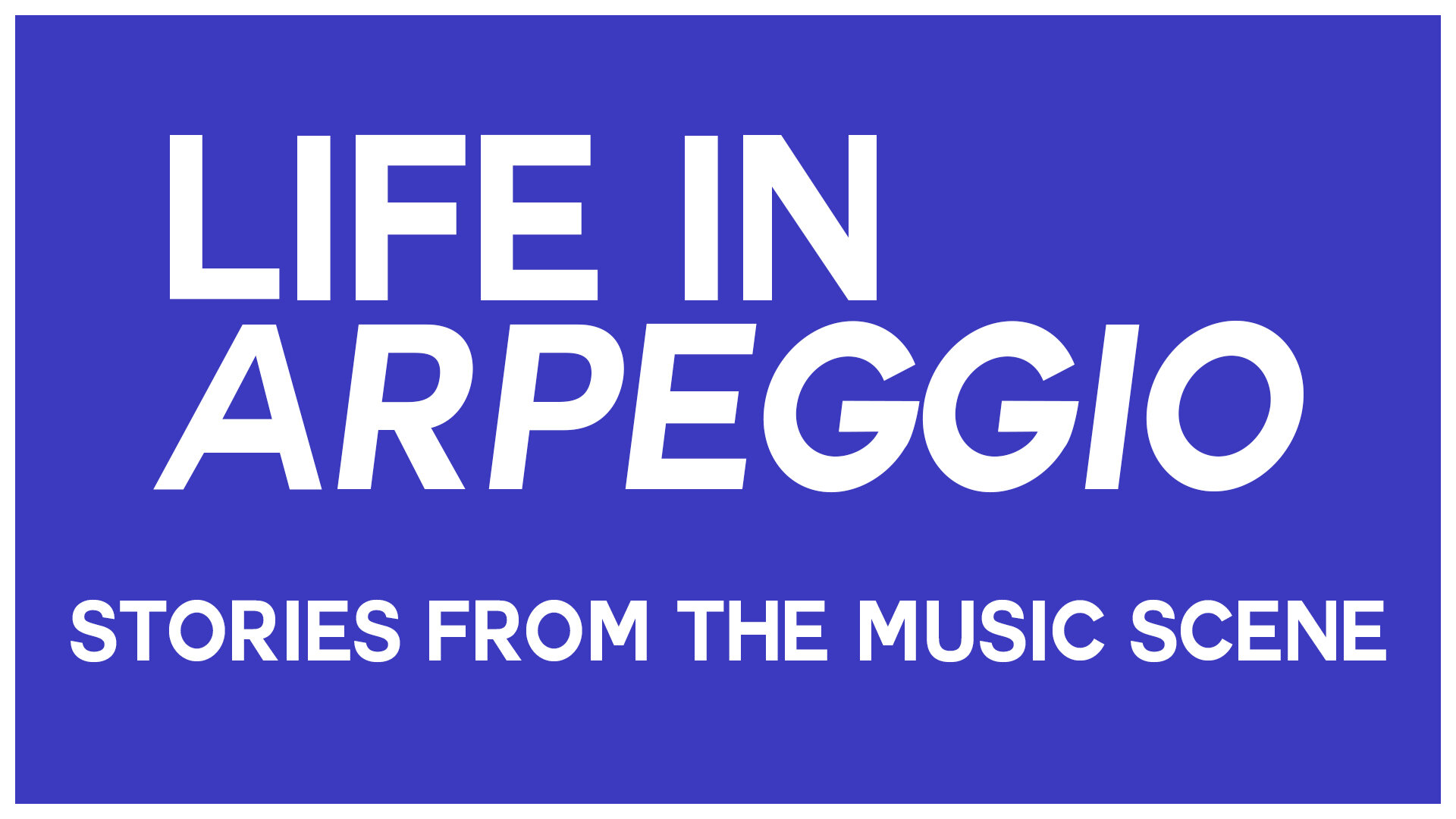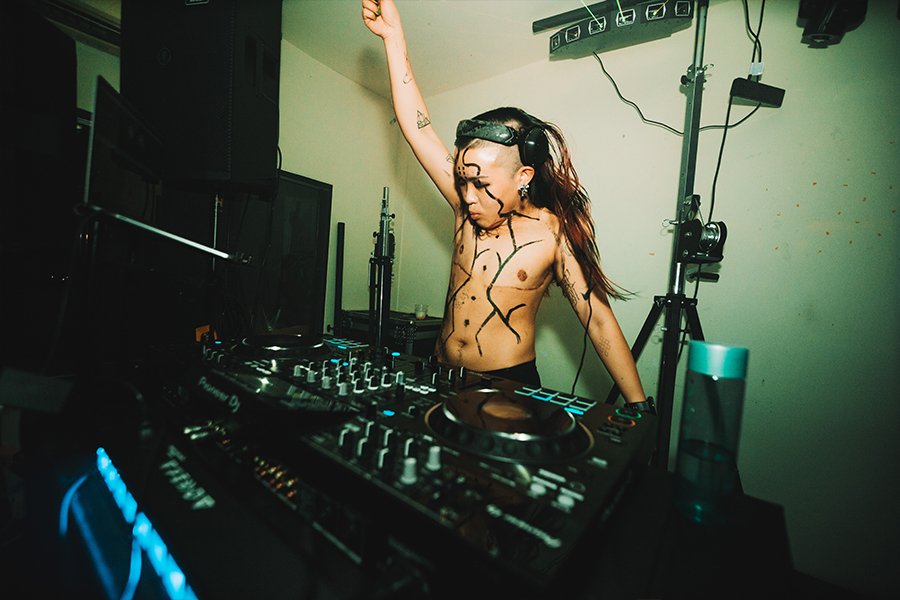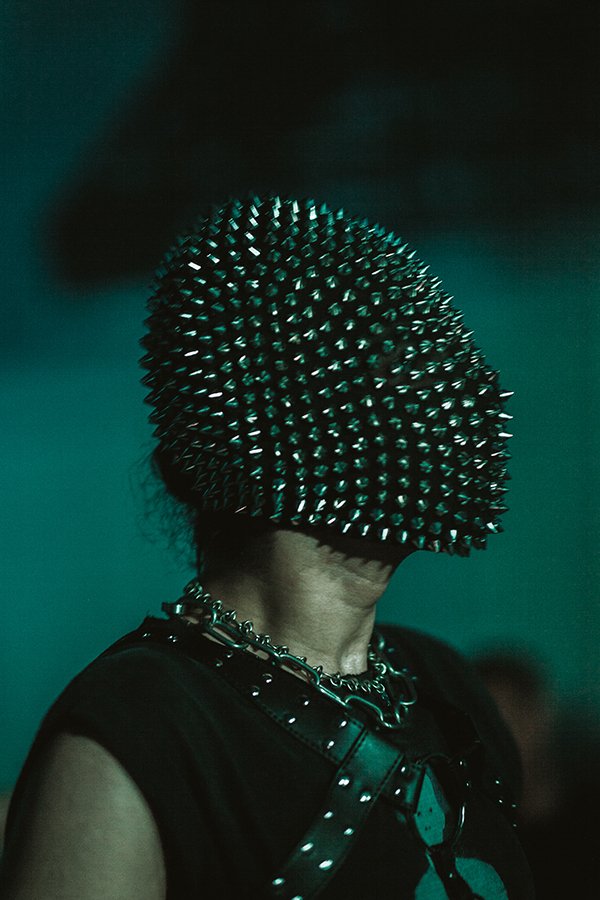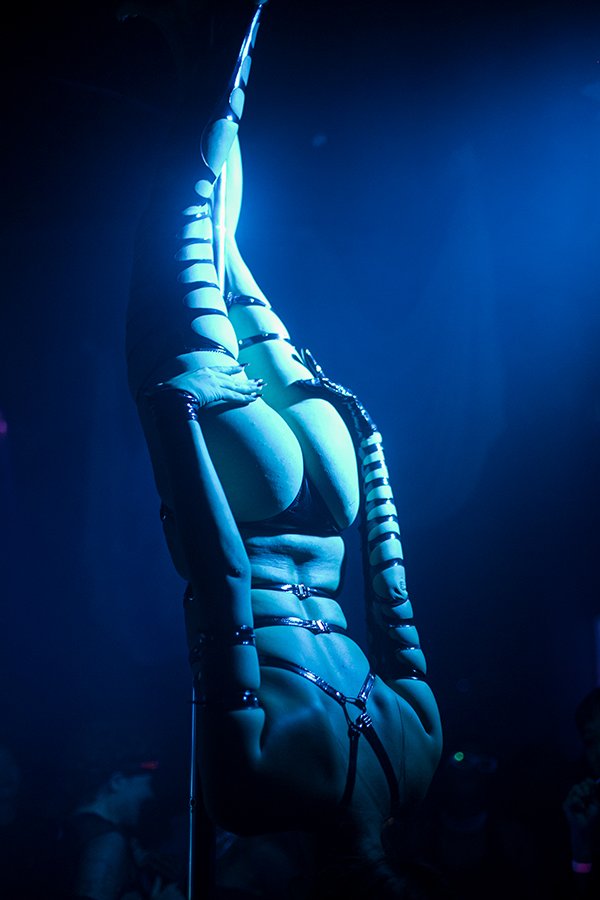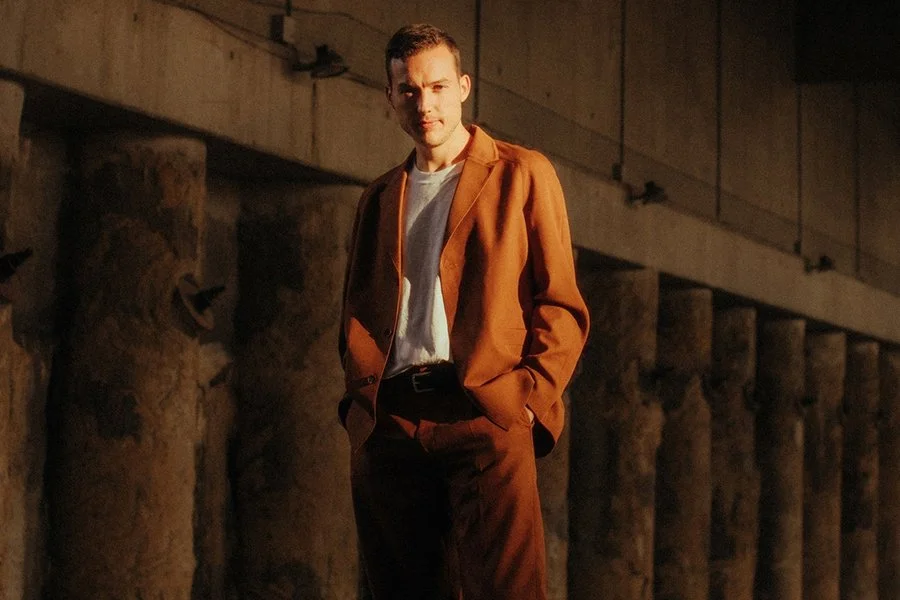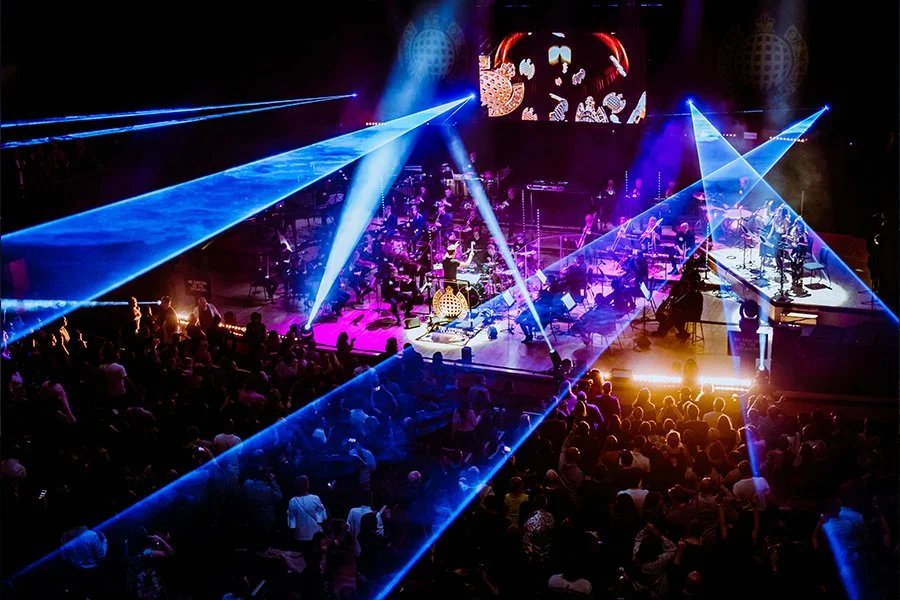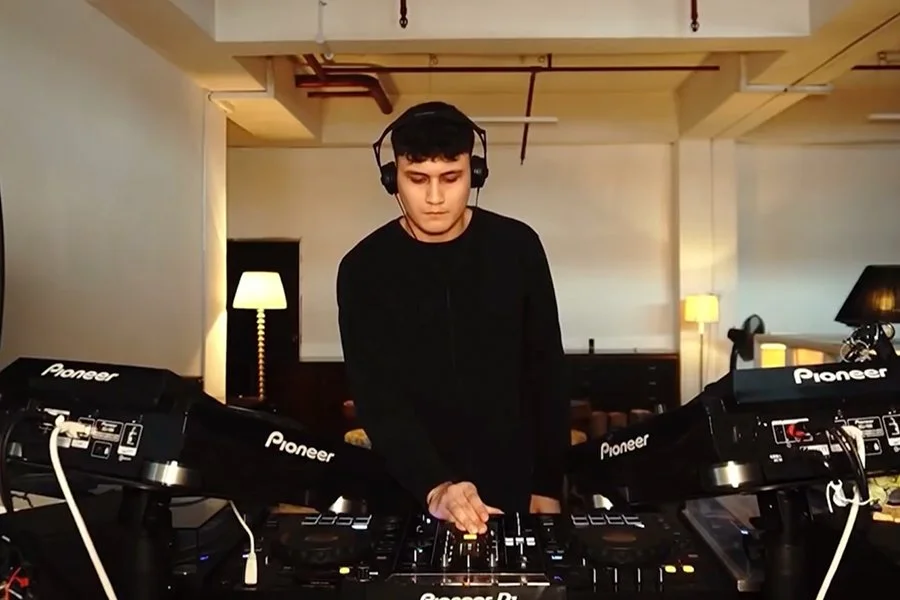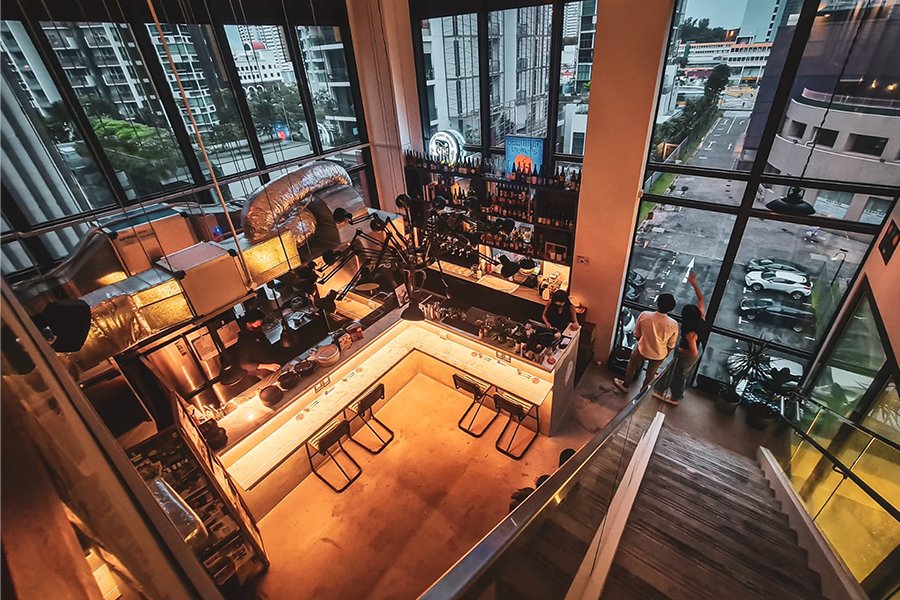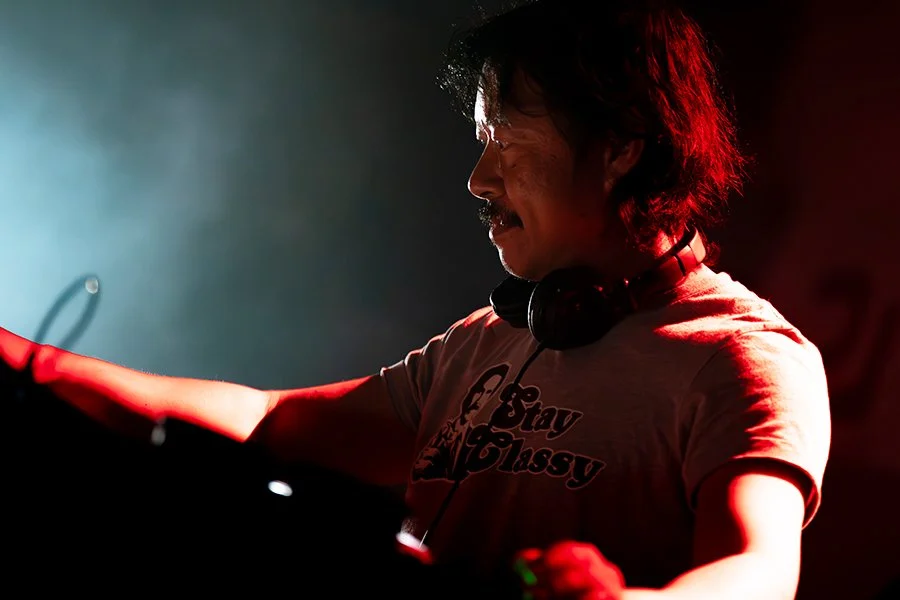The Sermon Of Bussy Temple: Shattering The Status Quo Of Queer Parties In Singapore
Bussy Temple explores the dogma of creating safe queer rave spaces in the scene (Credit: All images courtesy of Bussy Temple)
Twisted metal. Straps on skin. Ink and glitter. Leather and latex. Bodies and energies coalescing in unbridled bacchanalia, bound to the rhythms of industrial techno, broken beats and other experimental genres in the Gen-Z age of electronic music. But more importantly, there’s an overarching sense of liberation and freedom that pervades a Bussy Temple dancefloor, one that’s even more apparent than your average underground rave in Singapore.
A Bussy Temple event is not unlike an open canvas; a free-roaming horsewagon of expression with no hands on the reins. Identity here is whatever you make of it, in an environment that embraces a nebulous fluidity of genders to make everyone feel unjudged and included. Whether you’re trans, non-binary, femme or cis, you’re more than welcome at a Bussy Temple gig. Co-run by the sextet of Zenon, Kai, Jo, Bruce, Minsoo, and Nydia, Bussy Temple salutes the rooted ideals of dance music’s history, spurred on by the necessity to create a safe party space for the LGBTQ+ community.
Expression is limitless and it shows in the fashion and style choices of Bussy Temple’s community
Yet even amongst other queer-inclined parties and collectives in Singapore, the presence of Bussy Temple feels like an outlier. And it’s not just because of its musical philosophy that deviates from EDM or handbag house, but its mission to distinguish itself from other LGBTQ+ events that perpetuate more traditionally queer identities in an evolving day and age. Bussy Temple caters to the greys in the grey area, and to the ones who are fine not being defined. Just like Bussy Temple’s nascent discovery as a promoter, discovery of the self as an individual is fostered here.
While the collective’s only been around for about two years, it’s already amassed a loyal community that resonates with Bussy Temple’s credo of diversity. It’s a sermon that’s spread at regular-yet-inclusive nightspots like Iki, more far-flung locations like Turf Club, and currently with its ongoing base of operations at T:>Works. In fact it’s within this creative space once more where Bussy Temple will hold its next Lethal Fantasies gig on 21 October. Titled Lethal Fantasies: Chrysalis – shedding its cocoon to explore multifaceted aspects of femininity – it will feature a regional lineup that includes Teya Logos (PH), Puppt Ri0t (VN), rEmPiT g0dDe$$ (MY), Suhsi (MY), NydThakid (SG) and Bussy Temple’s own Metamoksha; along with dance performances by XUE, Sonia and Divya and light installations by Alina Ling.
To further unsheathe the story of Bussy Temple, especially regarding its metamorphosis for the scene in navigating and crafting queer party spaces in Singapore, we speak to the collective as a whole.
The people who make Bussy Temple possible
Bussy Temple comprises a colourful cast of characters to say the least. How did the bunch of you find each other?
Bussy temple started very organically when our friend discovered an abandoned tunnel and thought it’d be a nice place for us to gather. Before the name Bussy Temple even came about, a bunch of us simply wanted to have a place to dance and shared the same sentiment of not feeling comfortable or safe in mainstream dance parties, be it queer or non-queer events. It started off like that: An invite-only party for trans, non-binary, and femme folks, with portable speakers, LED lights, and a small DJ deck in the tunnel. Slowly, our community grew and we met each other along the way and decided to work together because we share a similar vision for the importance of queer rave spaces in Singapore.
Bussy Temple first started in an abandoned tunnel
Prior to the formation of Bussy Temple, were there limited avenues that enabled the types of expression that typically flourishes at one of your events? What about other queer-inclined parties or spaces in Singapore?
Definitely. Mainstream parties are typically cis-heteronormative, enforcing an unpleasant performance of gender. It is also easy to encounter predatory figures that don’t respect your space, forcing you to be on alert. Underground techno parties are still oriented towards ‘bro-culture’, and somehow, we also find queer spaces to feel relatively binary. A lot of them previously have been, and still are, cis men-oriented with a key interest to pander to muscular gay men, or lesbian parties with mostly cis fem- and masc-presenting people. There is little room for deviance from these queer archetypes and for a deeper investigation of the queer identity, which is why Bussy Temple was formed by us.
We spoke about how our queer bodies move differently in heteronormative spaces – consciously and unconsciously – they are tense, rigid, and on guard. It wears the body down to be on alert every day in heteronormative spaces knowing that you have to perform the gender binary for your own safety. This is why we started Bussy Temple.
Lineups of past Bussy Temple events have featured regional acts
In our space, we invite everyone to abandon these scripts regarding gender, instead unlearning and reworking how bodies can move and interact through rave spaces. This is why in our raves, there is always an aspect of world-building through the poster, concept, and storyline. We encourage the imagination of our ravers on what they can be, influencing their style, self-expression and overall attitude for the night. There is so much power in gathering in a physical space together and seeing different bodies move and interact with one another through conversations here and there. It opens pathways on possibilities of what we can or should be. We see our queer raves also as a way to build knowledge together on how we can behave and continue to queer our being.
When it comes to finding suitable venues for your events, have venues been generally supportive in hosting them? Has it been smooth-sailing, or a journey rife with resistance?
So far we’ve been quite lucky with the venues – from our first public event at Turf Club, to the big ‘birthday’ event at Iki (the first Lethal Fantasies), and now with our new home at T:>Works. Honestly, we have come across many venue collaborators who align with us in terms of our long-term vision and efforts, some of whom wish to provide venue support as well. These encounters and support have been so valuable to us as it reassures us that queer work can be sustained in Singapore. The biggest challenge is making the space work for us and making our vision come true by using the space.
“We see our queer raves as a way to build knowledge together on how we can behave and continue to queer our being.”
Are Bussy Temple events open to all genders, including cis ones? Or does this go against the credo of Bussy Temple’s events?
Yes, everyone and anyone is welcome in our space including cis folks. But we ask everyone in attendance to understand and respect that this is a space that prioritises queer, trans, and femmes. This looks, on a practical level, like letting folks know at the door that trans, femme, and queer folks should come to the front (of the rave space), and for others to step back. This part of Bussy Temple will never change because this is the core of why we started, from a genuine heartfelt shared frustration of the lack of space that celebrates and prioritises safety and encourages trans, nonbinary, and fem bodies to take up space in the night scene here in Singapore.
Your events take pride in building a safe space for all attendees. What sort of behaviour is considered intolerable, and how do you prevent such actions from happening at your events?
Yes, thank you for noticing that! Since our first initiation of parties even in the tunnel, this has been an ongoing discussion that we prioritise and spend time contemplating on. Parties always mention about being a safe space these days, but what does that actually mean and how can we ensure that we’re not just all talk (or just marketing)? For us there are three aspects to this for Bussy Temple:
Firstly, in deterring any unwanted behaviours, we always make sure to post our house rules and put it out in our marketing content to make it clear that we take safety seriously. This is not a space where you can be a predator without consequences, and if anything does happen to you, know that we will take it seriously. We got you.
Safety is of paramount importance at Bussy Temple gigs
Secondly, in terms of practicality, we always assign a lead safety person internally from Bussy Temple to be the person to make decisions and deal with any sensitive matters that might occur that night. In addition, we have a safety crew which normally comprises our own members and friends that walk around to check on the crowd, to see if there’s anyone who might be uncomfortable or unsafe in any way. We also work with an external security hire, which is particularly important in larger crowd settings. At the moment, we are in search of security guards who we can trust and work with closely for our future parties, as it is important that they understand what we do not tolerate. An example of unsafe behaviour is predatory behaviour of men or anyone towards our participants or any non-consensual activity. Being overly drunk and unruly is also a big no-no. We take a victim-first approach for sensitive matters, and will respect what they would like us to do on that day, especially grave matters such as physical or sexual assault.
Lastly, it is important to note that there’s never a space that can be 100% safe. What we are trying to do at Bussy Temple is to carve out a safER space and minimise the bullshit for our events. We control and deter what we can in the best way we can within our capacity, but ultimately ravers need to always be responsible for themselves and their friends! This is what we always like to encourage – taking care of each other.
“We can’t exist without our community. We’re world-building together.”
The themes of your events vary and tell a different story of the queer experience, from the idea of chrysalis to the concept of the father’s womb. Do these themes stem from first-hand collective experiences? Are they common threads that connect your community?
With every event, we get together and spend about one to two hours conceptualising our theme: what do we want to explore and process together with our community ?
With the themes, we construct a collective symbolism that can be understood – a fantastical vehicle to access and exorcise emotions, and play with facets of the queer experience. The fantastical is important, because there’s something about that that allows for more honest play and catharsis. It feels like the difference between having an intellectual discussion about it, versus evoking and embodying it.
Cyber Hell was one of the collective’s past themes for a gig back in September 2022
For example, for Lethal Fantasies: Chrysalis, we wanted to talk about shedding performative, conditioned femininity to become a monstrosity. We could have just said: change is scary, especially when it is about unconditioning yourself, and you don’t know if you’re going to survive it whether you’ll still be legible and accepted and respectable after it. Instead, we constructed a vignette of an insect-hybrid-being undergoing chrysalis, and the threads wrapping around them feeling both destructive and seductive. A caterpillar facing its death.
And because the themes are evocative rather than prescriptive, we’re inviting participants to play and construct with us, too. They’ll interpret it in a certain way, and respond with their own energy and expression. Our audience always amazes us with both their vibe and their outfits; it’s really part of the whole process and a huge part of our parties. We can’t exist without our community. We’re world-building together.
“With Lethal Fantasies, we are interested in particular to focus on soundscapes from Southeast Asia’s fem and non-binary DJs and artists within the contemporary electronic dance music scene.”
As for the music, does it always tend to be hyper-energetic and extreme? Or are there delicate explorations that contrast with the way techno has been evolving these past few years?
We would say that our music definitely veers more towards deconstructed and hard techno, with speedy and unreal frenetic beats. However, we also feel there is a unique Bussy Temple vibe to the hard music that you can almost recognise just by the selection of tunes. Our lineup of DJs often amplifies a queer expression, both through their style and sound mixes, and this is almost difficult to miss. This is also what our community has come to expect from us, and what other queer parties and initiatives know us for. Don’t expect any generic 4/4 tech-house beats at our events.
When it comes to honouring the roots and origins of dance music, do you feel that Bussy Temple has gone above and beyond?
Techno has its roots deeply in Detroit and was born as a way for the Black community to express themselves through futuristic sounds of that generation (the late ’80s-’90s). Building on that tradition, we work with underrepresented DJs, underground electronic sounds, and performers within the queer community here. By extension on that, with Lethal Fantasies, we are interested in particular to focus on soundscapes from Southeast Asia’s fem and non-binary DJs and artists within the contemporary electronic dance music scene. The techno music in this region tends to be much more expansive and experimental; a hybrid of genres is very common in the DJ sets from DJs in Asia in the underground scene. This is in line with the varying musical traditions across the different countries in our region. We really want to capture and showcase that. In the future, we might be interested to do a VA or EP to capture and immortalise these sounds.
“We urgently seek all queer rave and party spaces to reflect on the real implications of neglecting care as the labour goes beyond virtue-signalling and posters about safety.”
And lastly, what does Bussy Temple hope to achieve next? How do you balance between being an intimate safe space versus a bigger movement with a message that needs to be amplified?
At the moment we’re working on our year-long fellowship with T:>Works, and envision using this platform to reach out to more like-minded collaborators. In the past two years, we have grown rapidly as queer rave organisers and artists. Our work is slowly being recognised by the larger ESEA diaspora, within Asia and beyond, presenting exciting collaborations and potential opportunities in the near future. It is firstly important that we continue to listen to our immediate community and carve out spaces they are craving for.
As for maintaining a safer space, it is something we will continue to strengthen and reinforce through all our events. Being explicit about what you do not tolerate is the best way to sustain safer space practices in the long run. The work in ensuring that rave spaces are safer spaces exceeds Bussy Temple. We urgently seek all queer rave and party spaces to reflect on the real implications of neglecting care as the labour goes beyond virtue-signalling and posters about safety. We are slowly seeing more efforts to at least verbalise safety protocols at the door, but we hope to see more of these changes everywhere!
Bussy Temple presents Lethal Fantasies: Chrysalis, 21 October 2023, 8pm-late, T:>Works, 72-13 Mohamed Sultan Road, Singpaore 239007. Tickets available here. Follow Bussy Temple on Instagram for more updates on their activities.
